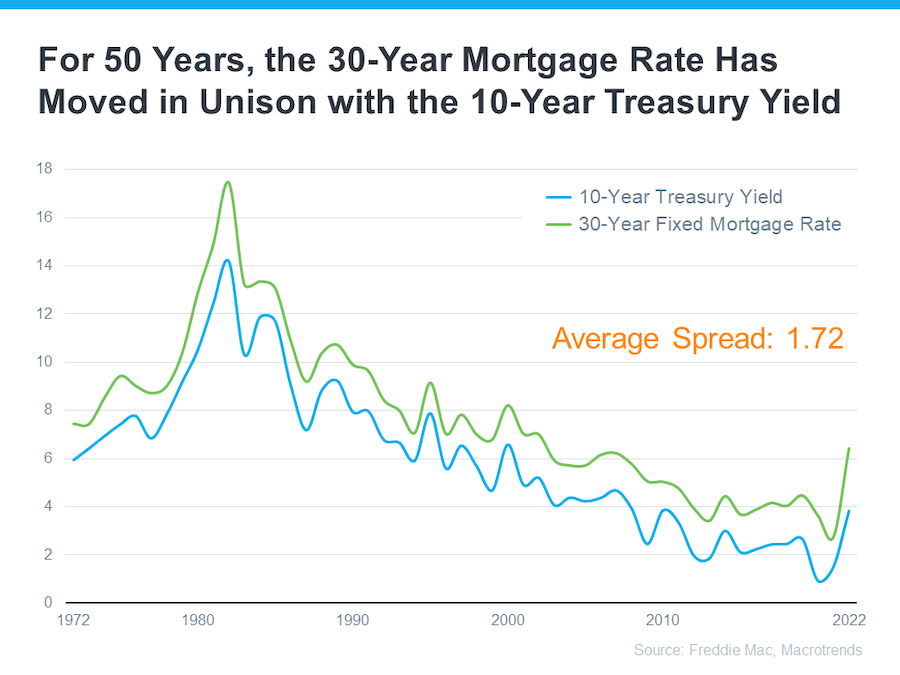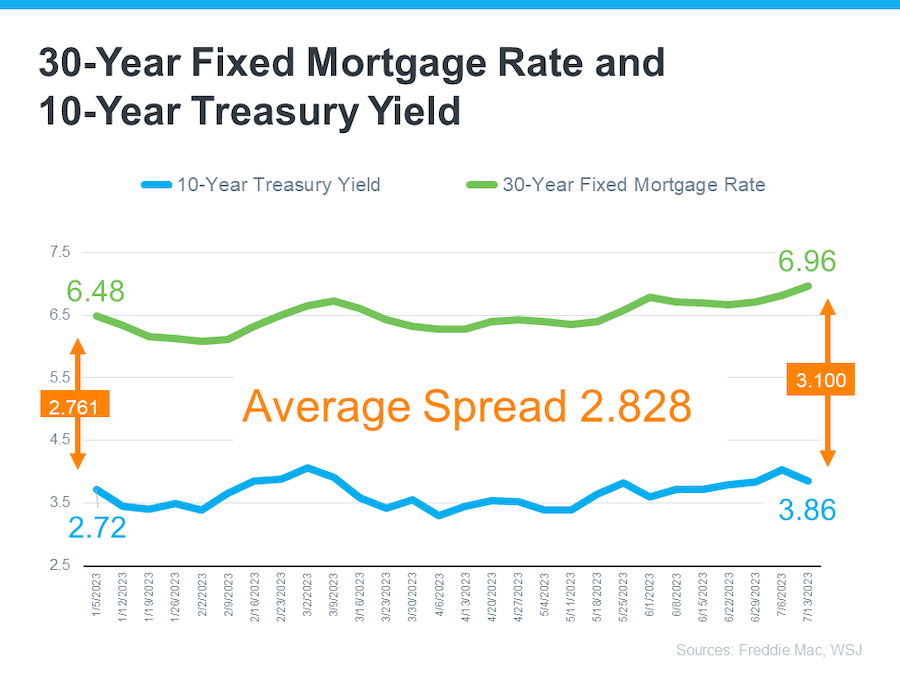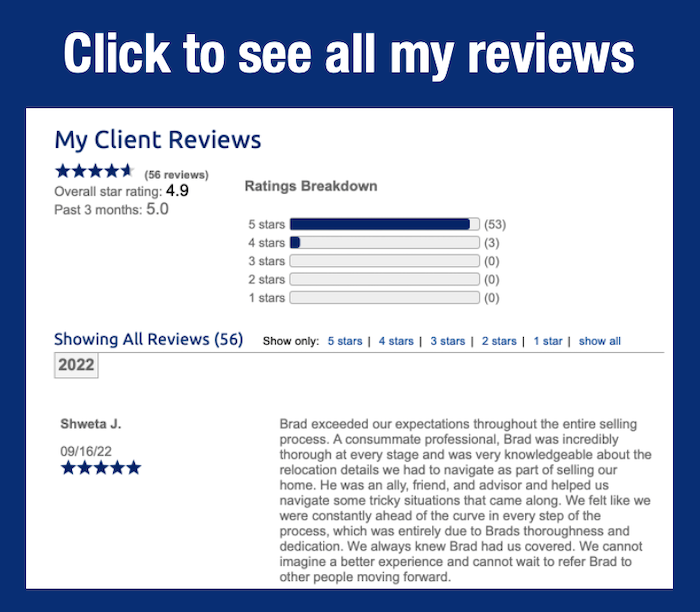|
|
If you are following mortgage rates because you know they impact your borrowing costs, you may be wondering what the future holds for them. Unfortunately,
there is no easy way to answer that question because mortgage rates are notoriously hard to forecast.
But, there is one thing that is historically a good indicator of what will happen with rates, and that is the relationship between the 30-Year Mortgage Rate
and the 10-Year Treasury Yield. Here is a graph showing those two metrics since Freddie Mac started keeping mortgage rate records in 1972:
 As the graph shows, historically, the average spread between the two over the last 50 years was 1.72 percentage points (also commonly referred to as 172
basis points). If you look at the trend line you can see when the Treasury Yield trends up, mortgage rates will usually respond. And, when the Yield drops,
mortgage rates tend to follow. While they typically move in sync like this, the gap between the two has remained about 1.72 percentage points for quite
some time. But, what is crucial to notice is that spread is widening far beyond the norm lately (see graph below):
As the graph shows, historically, the average spread between the two over the last 50 years was 1.72 percentage points (also commonly referred to as 172
basis points). If you look at the trend line you can see when the Treasury Yield trends up, mortgage rates will usually respond. And, when the Yield drops,
mortgage rates tend to follow. While they typically move in sync like this, the gap between the two has remained about 1.72 percentage points for quite
some time. But, what is crucial to notice is that spread is widening far beyond the norm lately (see graph below):
 If you are asking yourself: what is pushing the spread beyond its typical average? It is primarily because of uncertainty in the financial markets.
Factors such as inflation, other economic drivers, and the policy and decisions from the Federal Reserve (The Fed) are all influencing mortgage rates
and a widening spread.
If you are asking yourself: what is pushing the spread beyond its typical average? It is primarily because of uncertainty in the financial markets.
Factors such as inflation, other economic drivers, and the policy and decisions from the Federal Reserve (The Fed) are all influencing mortgage rates
and a widening spread.
Why Does This Matter for You?
This may feel overly technical and granular, but here is why homebuyers like you should understand the spread. It means, based on the normal historical
gap between the two, there’s room for mortgage rates to improve today.
And, experts think that is what lies ahead as long as inflation continues to cool. As Odeta Kushi, Deputy Chief Economist at First American, explains:
It is reasonable to assume that the spread and, therefore, mortgage rates will retreat in the second half of the year if the Fed takes its foot off the
monetary tightening pedal . . . However, it is unlikely that the spread will return to its historical average of 170 basis points, as some risks are here
to stay.
Similarly, an article from Forbes says:
Though housing market watchers expect mortgage rates to remain elevated amid ongoing economic uncertainty and the Federal Reserves rate-hiking war on
inflation, they believe rates peaked last fall and will decline to some degree later this year, barring any unforeseen surprises.
Bottom Line
If you are either a first-time home buyer or a current homeowner thinking of moving into a home that better fits your current needs, keep on top of
what is happening with mortgage rates and what experts think will happen in the coming months.

Over $125 Million in Career Sales

|
|




